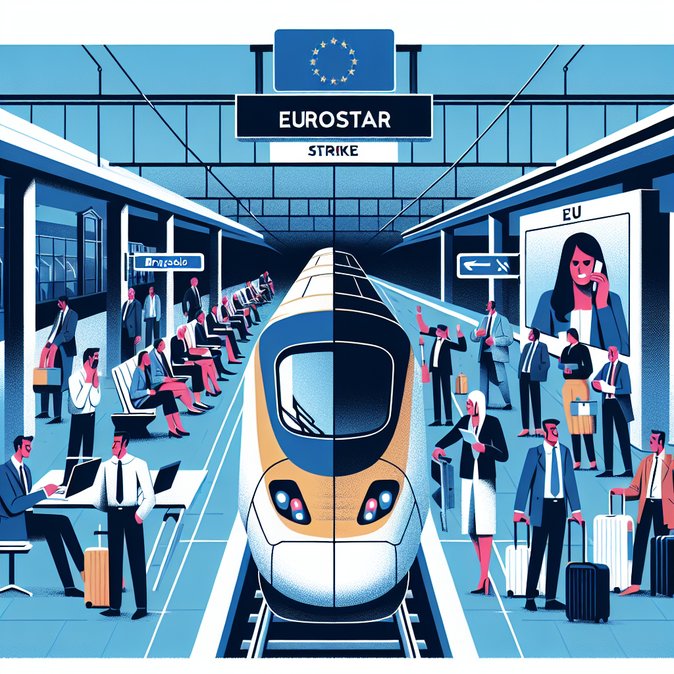
High-speed operator Eurostar will run only half its usual Brussels Midi–Paris Nord services between 24 and 26 November, citing staff shortages at Belgian rail-infrastructure company Infrabel and station security teams who will down tools during the nationwide strike. Links to Amsterdam and London will operate at roughly 75 % of normal frequencies, while Brussels-Liège-Germany routes will see service levels drop to just one-in-five trains.
The Brussels-Paris corridor is a lifeline for EU-institution personnel and cross-border commuters; pre-strike, up to 4,000 business travellers relied on the route daily for same-day meetings. With capacity halved, ticket prices on the remaining trains have spiked 60 % in dynamic-pricing systems, and airlines report heightened demand for last-minute seats.
![Eurostar Slashes 50 % of Brussels–Paris Trains for Strike Week]()
Eurostar is offering free exchanges or refunds, but availability is tight because SNCB’s intercity substitutes are also affected. Logistics providers that use Eurostar’s ‘freight-on-seat’ option for urgent pharma and legal documents warn of knock-on delays that could breach time-critical delivery windows.
Industry groups have renewed calls for Belgium to legislate an ‘essential international services’ protocol, similar to France’s, that would obligate a minimum timetable during strikes. Eurostar says it will review whether to pre-emptively add extra London–Paris capacity to ease pressure if Belgian labour unrest becomes recurrent.
In the interim, mobility managers are advising travellers to depart a day early, convert meetings to video calls or route via Lille and change trains—options that add cost and complexity but may still be faster than waiting until the walk-out ends.
The Brussels-Paris corridor is a lifeline for EU-institution personnel and cross-border commuters; pre-strike, up to 4,000 business travellers relied on the route daily for same-day meetings. With capacity halved, ticket prices on the remaining trains have spiked 60 % in dynamic-pricing systems, and airlines report heightened demand for last-minute seats.

Eurostar is offering free exchanges or refunds, but availability is tight because SNCB’s intercity substitutes are also affected. Logistics providers that use Eurostar’s ‘freight-on-seat’ option for urgent pharma and legal documents warn of knock-on delays that could breach time-critical delivery windows.
Industry groups have renewed calls for Belgium to legislate an ‘essential international services’ protocol, similar to France’s, that would obligate a minimum timetable during strikes. Eurostar says it will review whether to pre-emptively add extra London–Paris capacity to ease pressure if Belgian labour unrest becomes recurrent.
In the interim, mobility managers are advising travellers to depart a day early, convert meetings to video calls or route via Lille and change trains—options that add cost and complexity but may still be faster than waiting until the walk-out ends.


